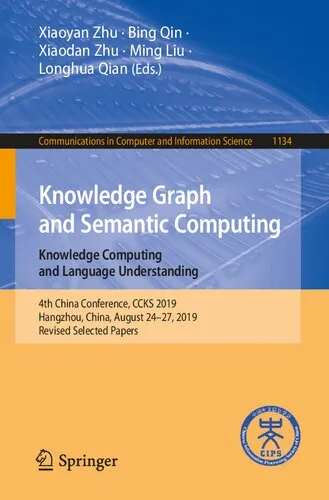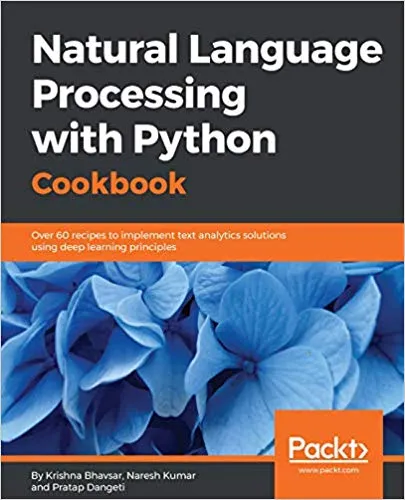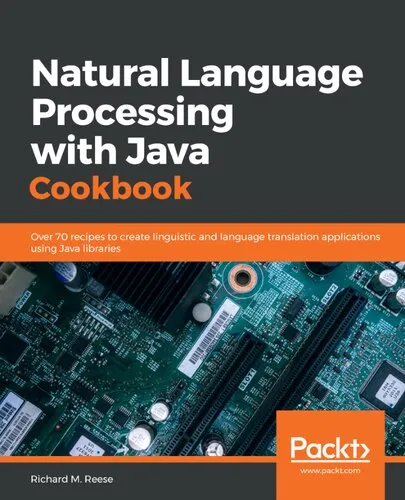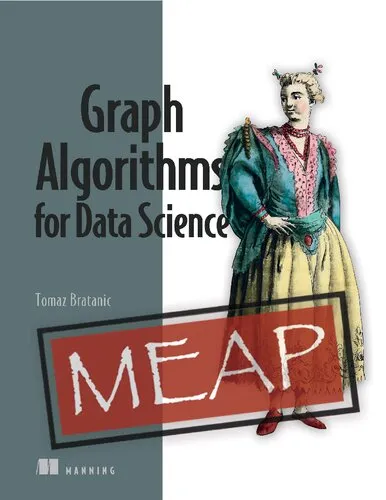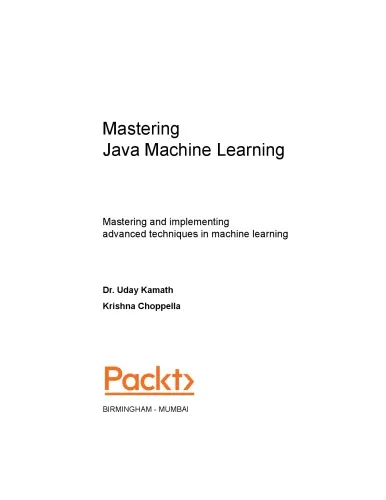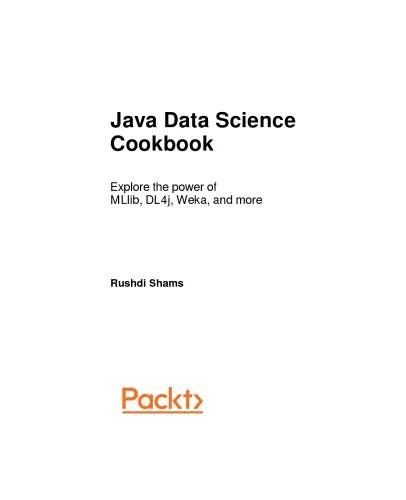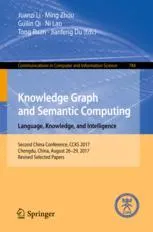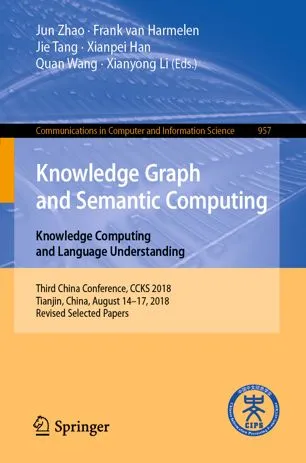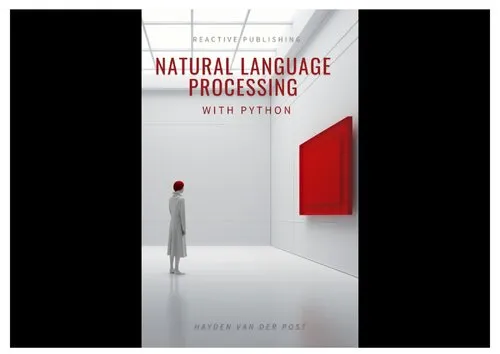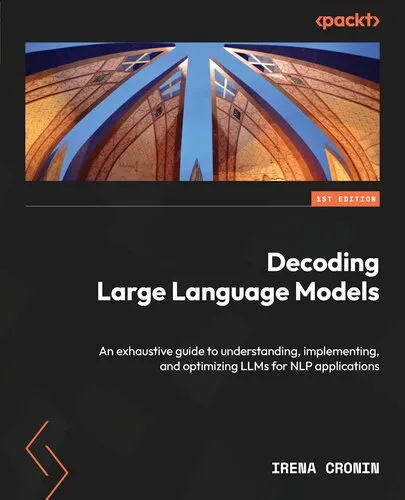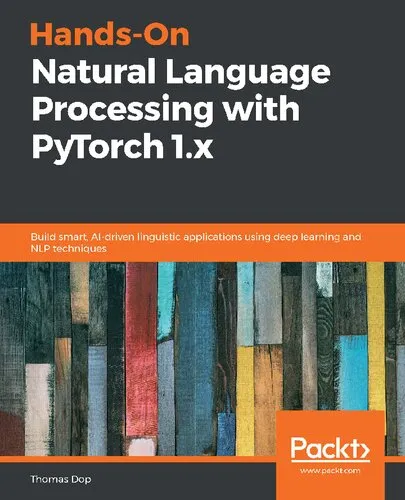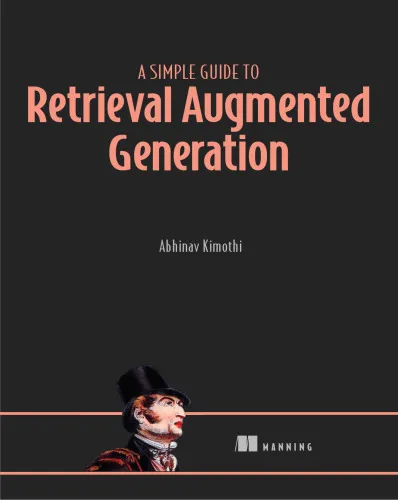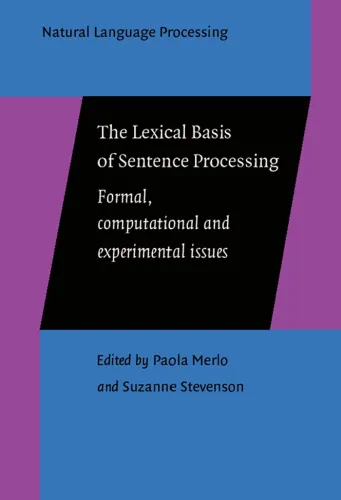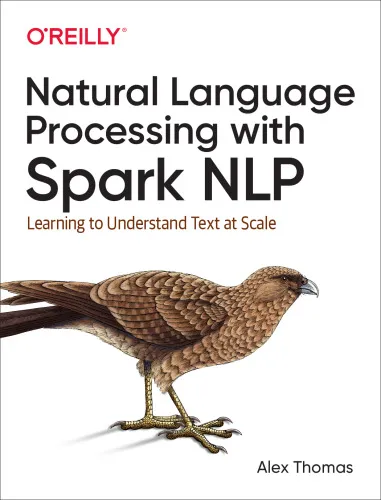Knowledge Graph and Semantic Computing: Knowledge Computing and Language Understanding: 4th China Conference, CCKS 2019, Hangzhou, China, August ... in Computer and Information Science)
4.0
Reviews from our users

You Can Ask your questions from this book's AI after Login
Each download or ask from book AI costs 2 points. To earn more free points, please visit the Points Guide Page and complete some valuable actions.Related Refrences:
Introduction
The book "Knowledge Graph and Semantic Computing: Knowledge Computing and Language Understanding" is a comprehensive compilation of cutting-edge research and practical advancements in the domains of knowledge graphs, semantic computing, and their integration with natural language understanding. This book encapsulates the major findings and innovations presented during the 4th China Conference on Knowledge Graph and Semantic Computing (CCKS 2019), held in Hangzhou, China. It is a vital resource for researchers, academics, and industry professionals eager to explore the intersections of artificial intelligence, knowledge representation, and language technologies.
Authored and edited by highly esteemed scholars, this book is part of the prestigious "Communications in Computer and Information Science" series, known for its scientific rigor and depth. The CCKS 2019 conference provided a platform for thought leaders and practitioners to share their findings, facilitating rich discussions and innovation around knowledge graphs and semantic computing, two areas that are driving a revolution in artificial intelligence research and applications.
Detailed Summary of the Book
The content of this book takes readers on an intellectual journey through various aspects of knowledge graph construction, semantic reasoning, and their applications in natural language understanding and beyond. The chapters are structured around a combination of theoretical frameworks, algorithmic developments, and real-world use cases.
The first sections of the book focus on methods and practices for building and optimizing knowledge graphs. This includes discussions on data acquisition, preprocessing, and representation techniques leveraging both structured and unstructured sources of information. Innovative approaches for entity recognition, relationship extraction, and ontology modeling are also explored in detail.
Further chapters delve into semantic computing, an area that bridges computational models and meaningful data interpretation. The authors present powerful techniques for semantic reasoning, query optimization, and context-based information retrieval. Special emphasis is given to the application of semantic technologies in domains such as healthcare, education, and business intelligence.
A significant portion of the book is dedicated to natural language processing (NLP) tasks, such as dialogue systems, machine translation, and question-answering systems. By demonstrating how knowledge graphs are utilized to enhance language understanding and generate accurate, meaningful responses, the book highlights the synergy between knowledge representation and language technologies.
Lastly, the book provides unique insights into emerging trends, challenges, and opportunities in knowledge graphs and semantic computing, encouraging readers to envision future innovations in this exciting field.
Key Takeaways
- Comprehensive understanding of knowledge graphs and their construction methodologies.
- Insights into semantic computing and its role in intelligent systems.
- An exploration of the interplay between knowledge representation and natural language processing.
- Case studies showcasing real-world applications of knowledge graphs in diverse domains.
- Projections of future developments in AI through the lens of knowledge and semantic technologies.
Famous Quotes from the Book
"A truly intelligent system is one that not only processes information but also understands the meaning behind it."
"Knowledge graphs and semantic computing aren't just tools—they are bridges connecting human cognition with machine intelligence."
"The future of AI lies in its ability to reason, infer, and relate information as humans do, and knowledge graphs are the foundation of that future."
Why This Book Matters
In an era where information is the most valuable resource, understanding how to structure, compute, and apply it is of paramount importance. This book addresses this imperative need by exploring knowledge graphs and semantic computing—two complementary fields that are reshaping the AI landscape. It provides a unified view of how machines can interpret, reason with, and utilize data in ways that mimic human understanding.
By compiling the latest advancements from the CCKS 2019 conference, this book serves as more than just a collection of research papers; it is a roadmap for anyone seeking to develop innovative AI applications. The methodologies, tools, and conclusions presented in this book empower researchers, students, and professionals to tackle complex challenges in AI, data science, and information management.
Whether you are building intelligent search engines, improving NLP systems, or exploring new possibilities in data integration, this book offers foundational knowledge, practical solutions, and pathways for future exploration. Its significance lies not only in its technical depth but also in its vision for the future of AI, making it a must-read for anyone interested in the intersections of technology, knowledge, and language.
Free Direct Download
You Can Download this book after Login
Accessing books through legal platforms and public libraries not only supports the rights of authors and publishers but also contributes to the sustainability of reading culture. Before downloading, please take a moment to consider these options.
Find this book on other platforms:
WorldCat helps you find books in libraries worldwide.
See ratings, reviews, and discussions on Goodreads.
Find and buy rare or used books on AbeBooks.
1180
بازدید4.0
امتیاز0
نظر98%
رضایتReviews:
4.0
Based on 0 users review
Questions & Answers
Ask questions about this book or help others by answering
No questions yet. Be the first to ask!
